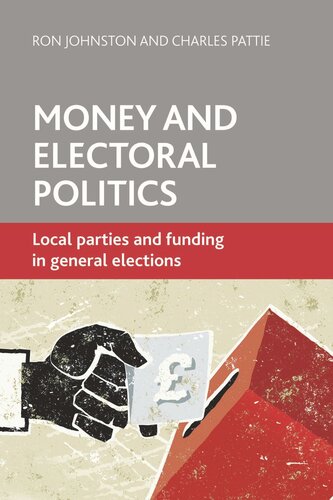

Most ebook files are in PDF format, so you can easily read them using various software such as Foxit Reader or directly on the Google Chrome browser.
Some ebook files are released by publishers in other formats such as .awz, .mobi, .epub, .fb2, etc. You may need to install specific software to read these formats on mobile/PC, such as Calibre.
Please read the tutorial at this link: https://ebookbell.com/faq
We offer FREE conversion to the popular formats you request; however, this may take some time. Therefore, right after payment, please email us, and we will try to provide the service as quickly as possible.
For some exceptional file formats or broken links (if any), please refrain from opening any disputes. Instead, email us first, and we will try to assist within a maximum of 6 hours.
EbookBell Team

4.1
90 reviewsPolitical parties are crucial to British democracy, providing the foundations for mobilising voters. Their constituency branches are key links between voters and Parliamentary candidates and their activities require two vital resources – people and money. Much has been written on the decline of party membership but far less on money. In this much-needed new book, Ron Johnston and Charles Pattie use the latest research and hitherto unpublished material to explore financial differences across the UK’s three main parties in the four years leading up to the 2010 General Election. They look at how much local parties raise for election campaigns and find that the more money candidates spend then, the better their performance. Analyses of their annual accounts, however, show that many local parties are unable to raise all of the money that they are entitled to spend on such campaigns. This reveals an unhealthy picture of grassroots party organisation in which the capacity to engage effectively with many voters is concentrated in a relatively small number of constituencies and is likely to remain so. This timely and essential book will make a major contribution to the literature on British elections and parties, especially to continuing debates regarding party funding. It will make important reading for academics, students, politicians, civil servants and others interested in this topic.